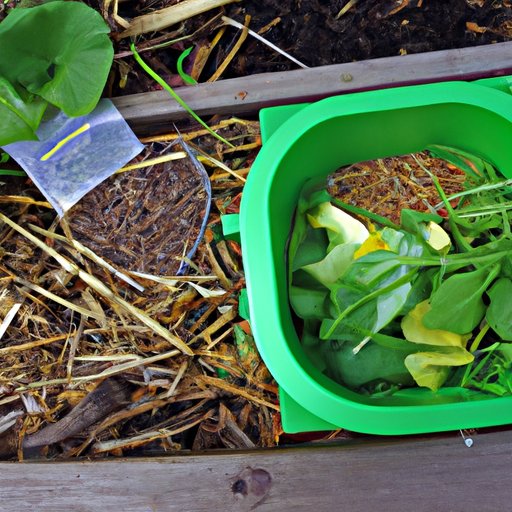Introduction: The Importance of Eco-friendly Gardening Practices
Gardening is a rewarding hobby that offers numerous benefits, from connecting with nature to enjoying fresh produce from your harvest. However, it’s essential to ensure that our gardening practices are sustainable and eco-friendly. The use of pesticides and synthetic fertilizers, for instance, can harm the environment, including the insects and birds that help pollinate your plants. If you are interested in going green with your gardening efforts, here are some tips you can follow.
Tip #1: Start with Nutrient-Rich Soil
Soil is the foundation of your garden, and it’s crucial to have nutrient-rich, healthy soil to grow your plants successfully. Using synthetic fertilizers and pesticides can degrade your soil over time, and the chemicals can harm beneficial soil organisms that keep your plants healthy. Instead, opt for natural soil amendments like compost, manure, and leaf litter to enrich your soil naturally. You can also utilize cover crops, green manure, and crop rotation to maintain healthy soil quality.
Tip #2: Use Companion Planting Strategies
Companion planting involves growing different plant species together to enhance growth and promote natural pest control. Some plants, like basil, marigold, and garlic, can repel pests naturally. On the other hand, some plants attract beneficial insects like bees and ladybugs, which help pollinate your plants and keep pests at bay. Consider interplanting crops with a variety of flowers, vegetables, and herbs to create a balanced ecosystem in your garden.
Tip #3: Compost Regularly
Composting is a cost-effective way of reducing waste and improving soil fertility. Instead of disposing of fruit and vegetable scraps, grass clippings, and other organic matter, you can compost them to create rich, nutrient-dense soil. You can also add yard waste like leaves, branches, and twigs to your compost pile. Composting enhances soil structure, prevents soil erosion, and supports a thriving community of beneficial soil microorganisms.
Tip #4: Conserve Water
Water conservation is critical for sustainable gardening practices, especially in areas prone to drought and water scarcity. Consider incorporating rainwater harvesting systems to collect rainwater for your garden. You can also use drips, soaker hoses, and other irrigation methods to reduce water waste. Additionally, mulching your plants can help retain soil moisture while suppressing weed growth and improving soil quality.
Tip #5: Use Natural Pest Control Methods
Using synthetic pesticides can harm beneficial insects and lead to pesticide resistance. Instead, you can use natural pest control methods like crop rotation, companion planting, and using physical barriers to keep pests at bay. For instance, you can use floating row covers to protect your seedlings from insect infestations. Handpicking insects and manually removing them from your plants can also help prevent pest outbreaks.
Conclusion: Recap of the Importance of Sustainable Gardening in Combating Climate Change
Sustainable gardening practices are essential in promoting environmental conservation and reducing the ecological footprint of our gardening practices. By following these tips, you can create a thriving garden that supports a healthy ecosystem and provides fresh, organic produce season after season. Remember to practice patience, observe your plants’ growth and take notes on what works in your garden, and make adjustments as needed. Together, we can all make a difference in combating climate change through eco-friendly gardening practices.
